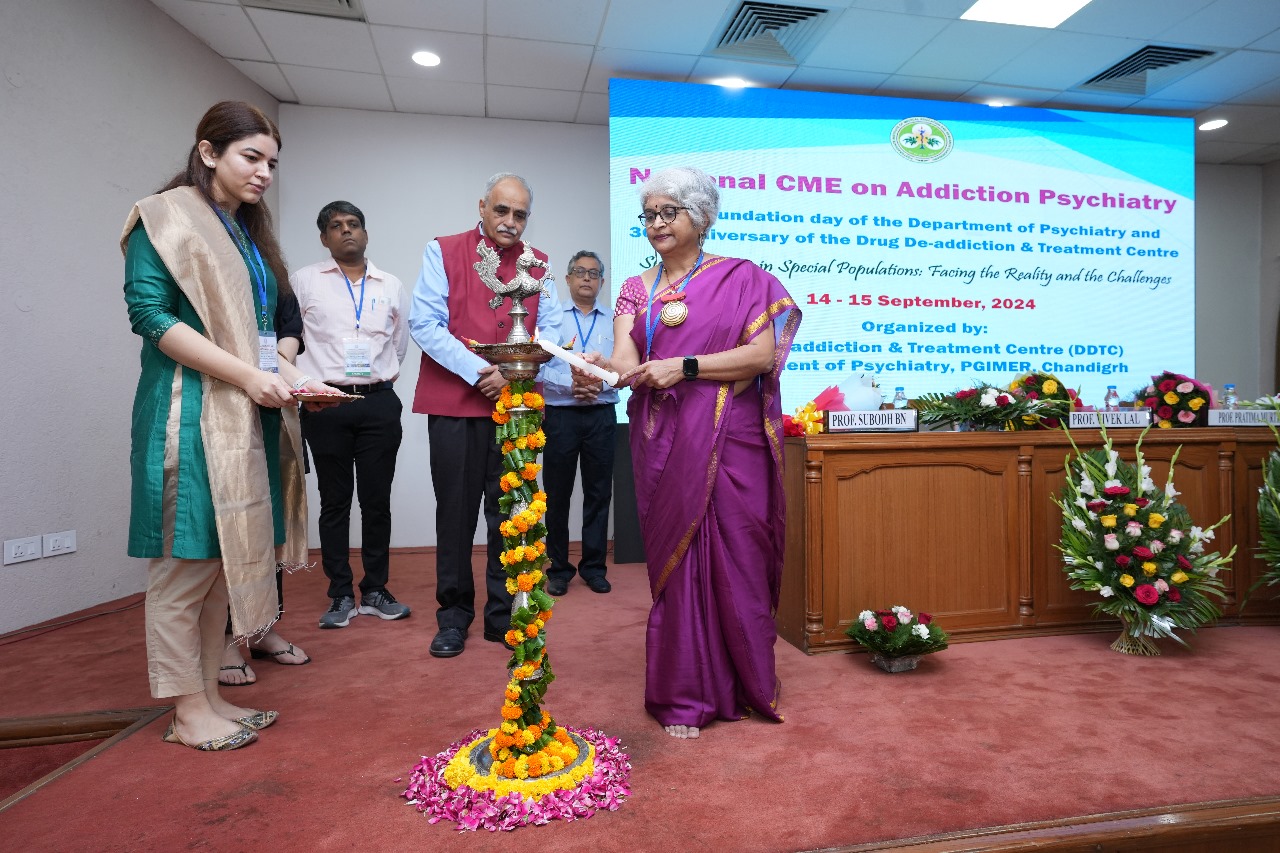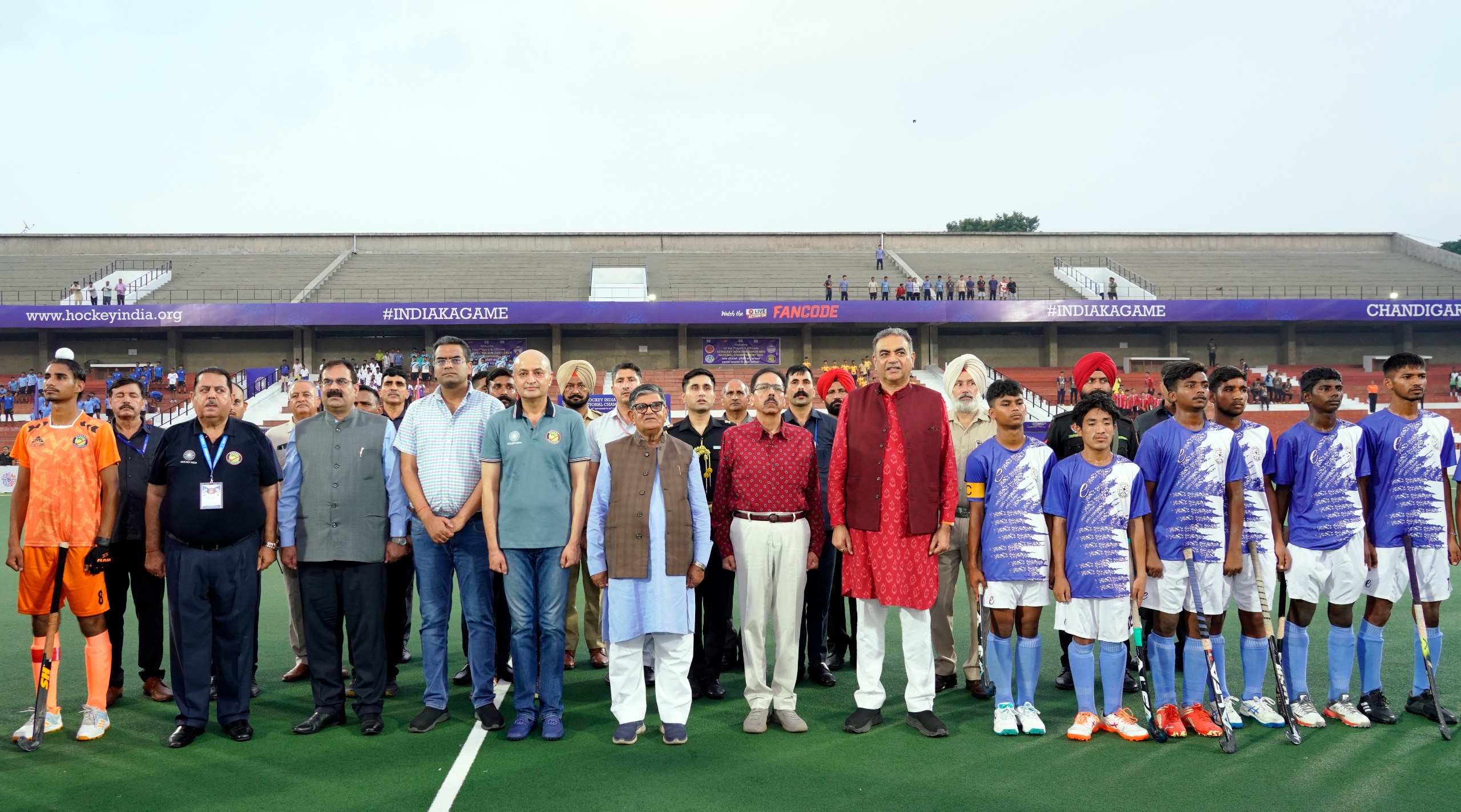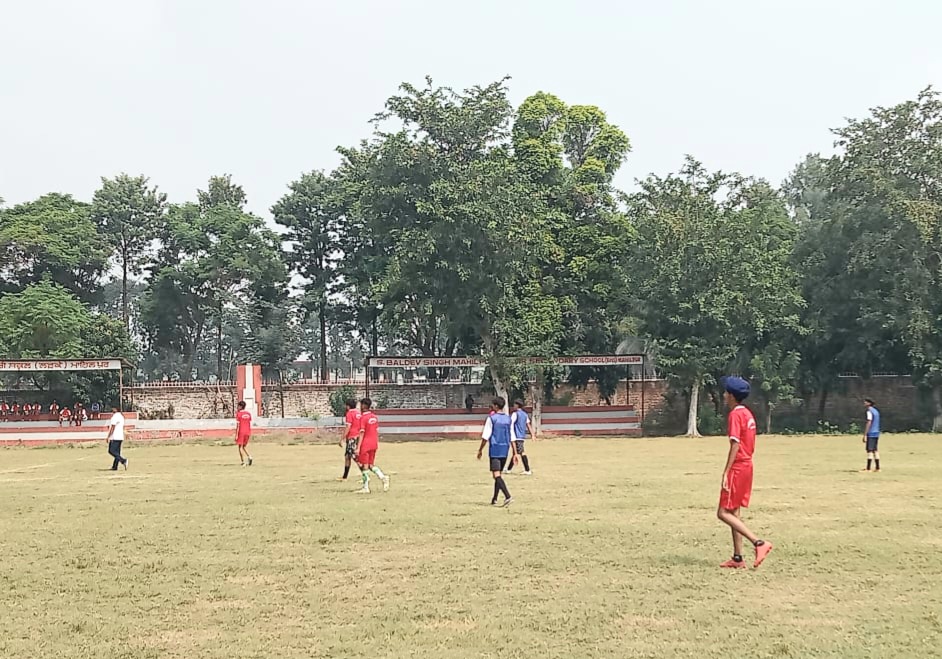
National CME on Addiction Psychiatry Tackles Modern Challenges
The National Continuing Medical Education (CME) on “Addiction Psychiatry: Facing the Reality and the Challenges” is scheduled for September 14-15, 2024, at the Postgraduate Institute of Medical Education and Research (PGIMER). Organized by the Drug De-Addiction and Treatment Centre within the Department of Psychiatry, the CME will address the growing concerns around substance use disorders.
The National Continuing Medical Education (CME) on “Addiction Psychiatry: Facing the Reality and the Challenges” is scheduled for September 14-15, 2024, at the Postgraduate Institute of Medical Education and Research (PGIMER). Organized by the Drug De-Addiction and Treatment Centre within the Department of Psychiatry, the CME will address the growing concerns around substance use disorders.
Substance use problems are becoming increasingly prevalent across diverse demographics, including children, women, the elderly, and marginalized groups like LGBTQ+ individuals. Historically, substance abuse was associated with specific profiles—young males for drugs, middle-aged adults for alcohol, lower-class individuals for cheap drugs, and upper-class for club drugs. Today, substance use crosses all societal boundaries, making it a universal issue.
The CME will feature experts from across India discussing various aspects of substance use in vulnerable populations. Prof. Vivel Lal, Director of PGIMER, will inaugurate the event. Prof. Pratima Murthy from NIMHANS will present on substance use in women, while Prof. Subodh B. N. will cover assessment and management strategies for women. Prof. Anju Dhawan from AIIMS will discuss substance use among adolescents, and Prof. Arun Kanadaswamy will focus on adolescent management. Panel discussions and Q&A sessions will follow.
With over 200 attendees, including students and practicing psychiatrists, the CME aims to enhance diagnostic and management skills. The second day will explore substance use in elderly populations, emergency settings, jails, LGBTQ+ communities, and its impact on non-communicable diseases (NCDs).








